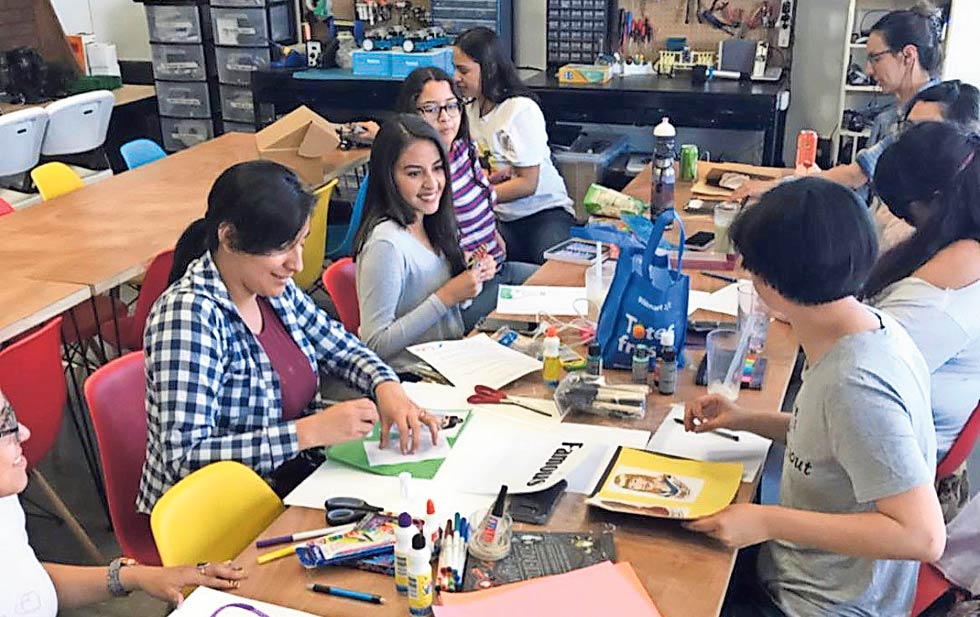Ivana Leos/El Paso Magazine
Wednesday, 09 March 2022 | 05:00
Only 33 percent of scientists globally are women. This is what prompted the international organization 500 Women in Science to advocate for gender equality and opportunities for thousands of women seeking community in science.
In this city, the organization has created its own niche made up of hardworking women, alumni of different institutions and students in training. The group was called 500 Women Scientists from El Paso.
Its mission, according to the organization, is to make science “open, inclusive and accessible.”
The first in-house unit was started in 2018 by scientist Catherine Court and a small group of alumni from the University of Texas at El Paso (UTEP).
Jennifer Holguin, the organization’s current leader in El Paso and a doctoral candidate, said the organization provides support and a sense of community for local women and gender-diverse people in the sciences.
“As a frontier city, we also wanted to strengthen the connection between science and the El Paso community. People of color, including Latinos, are severely underrepresented in undergraduate and graduate STEM programs. Therefore, it was essential for us not only to Supporting women in STEM fields, but also showing our community that science is fun and that they can do it too.”
The leader said they hold members-only meetings each month and try to connect with the El Paso community as much as possible.
“We have hosted free guided walks, trivia nights, and Women in Science Wikipedia marathons, and also volunteer as often as possible at events organized by local organizations such as the Frontera Land Alliance, the Insights Museum, and UTEP groups,” he commented.
Holguin stresses that the role of women in science has been difficult, however, and the societies and women’s federation have made a difference in El Paso.
“Women have repeatedly made remarkable contributions to science. However, women still make up only 33 percent of scientists globally. The numbers are even worse for women of color,” Holguin said.
“Given the challenges our world faces today, we definitely need the minds of women, gender diverse people, people of color in STEM so we can properly address these issues,” she said.
Holguin is currently a fourth-year PhD student in Ecology and Evolutionary Biology at UTEP.
“My research focuses on how air pollutants from agriculture and oil and gas activity affect plant communities and ecosystem functioning in Carlsbad Caverns National Park,” he said.
My research is important because it is essential to understand how humans can affect the air we breathe, the water we drink, and the plants and soils that we and wildlife depend on. As researchers, it is our job to fully identify and understand problems to help develop solutions to combat these problems.”
Holguin believes it is necessary to focus efforts on involving women of all ages and races in science, in order to build a larger society and increase the proportion of women scientists in the world.
“The research I do is useful to me because I care deeply about our environment. However, I also find great satisfaction in mentoring young people in science. To date, I have mentored and trained more than 10 undergraduate students, most of whom are women of color.”
Holguin advised women interested in science to find a place where they could pursue their interests without restrictions.
“Find your community, for example, friends, teachers, classmates. Be curious, do not be afraid to ask questions, and remember that science needs you.”

“Social media evangelist. Student. Reader. Troublemaker. Typical introvert.”

:quality(85)/cloudfront-us-east-1.images.arcpublishing.com/infobae/TEQF6EONZRFGLLLDIDD4L2O4EE.jpg)

:quality(75)/cloudfront-us-east-1.images.arcpublishing.com/elcomercio/XU32LRAEZFDDPNVHLFU3CKVBYY.jpg)



More Stories
Venezuela ranks fourth in female leadership in science and technology in Latin America
In Portuguesa and Sucre they explore the wonderful world of science
The university court overturns the expulsion of two teachers and a chemical sciences student